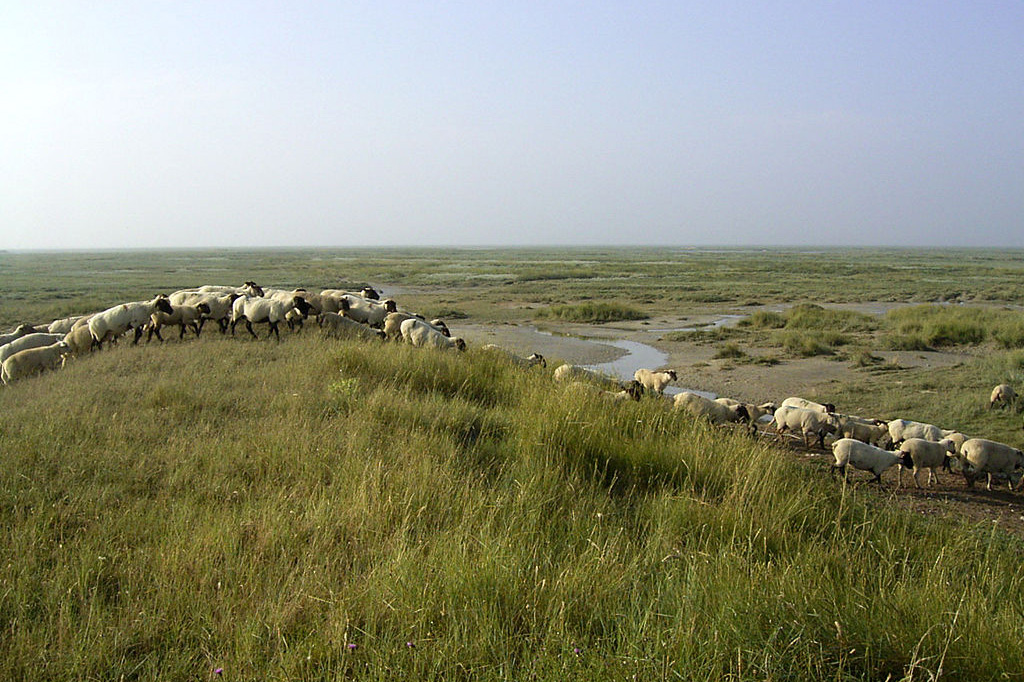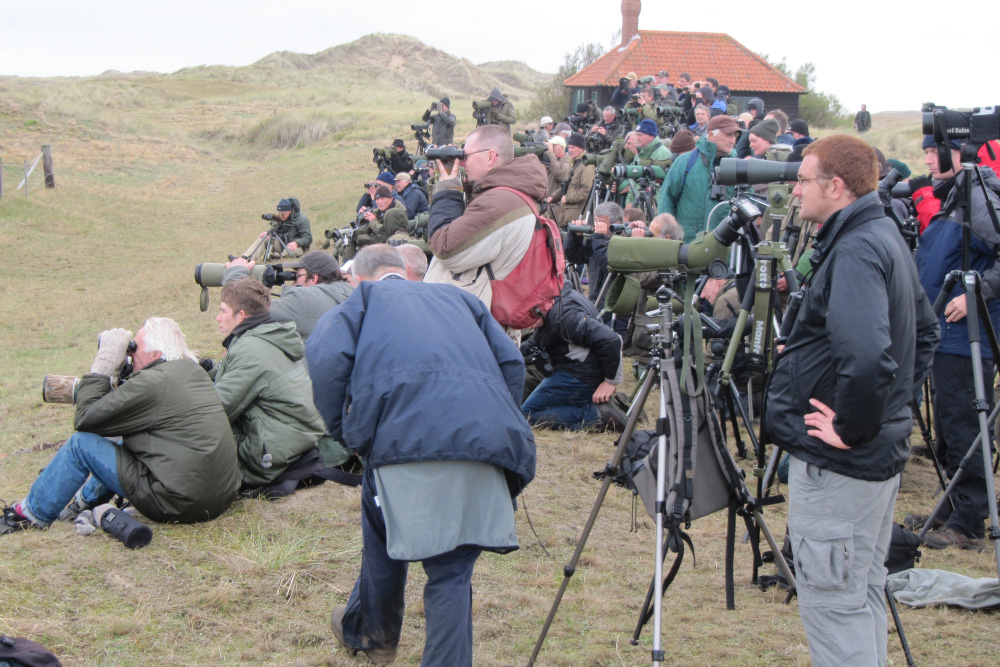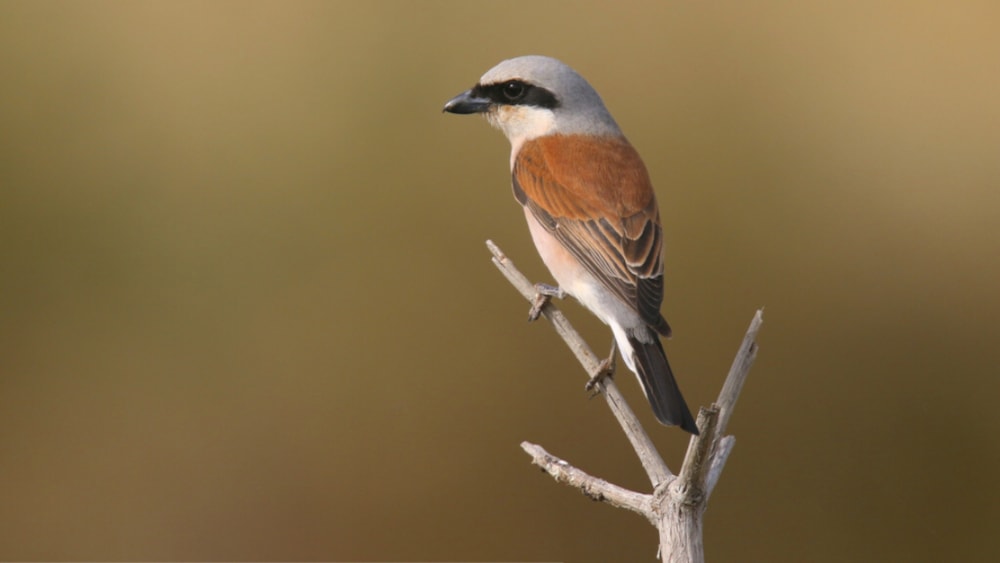Should all conservationists be vegetarian? At first sight, the obvious answer appears to be yes. In a world where the Earth's natural resources – including food and energy – are in short supply, and our over-use of them is contributing to problems such as global climate change and habitat loss, it would appear to be a sensible option. As conservationists – and birders – we have a duty to look closely at the way our lives impact on the wildlife we love.
But I'm going to argue – for several different reasons – against the proposal. I do so first because it would be hypocritical not to, as I have always eaten meat and plan to continue doing so. I enjoy it – as I enjoy many other kinds of food – and it is part of my upbringing and culture, as it is for the vast majority of people in Britain, including many conservationists and birders.
What we eat is surely one of the most personal of all aspects of our lives, so if anyone chooses to be vegetarian (for ethical, health or any other reasons), that's fine by me. Likewise, though, I don't expect them to criticise my choice.
Like many people, I don't take kindly to the holier-than-thou attitude of a small minority of vegetarians, who wear their eating habits as some kind of badge of pride, even as a rebuke to those of us who continue to eat meat.
The reason this attitude annoys me is because it is short-sighted and hypocritical. It's short-sighted because in the scheme of things eating meat is just one of many aspects of our lives that cause harm to the planet and its wildlife. And it's hypocritical because vegetarians themselves contribute to that harm, in all but one of the ways that meat-eaters do.

Eating meat is just one of many aspects of modern life that causes harm to the planet and its wildlife (Snjeschok / commons.wikimedia.org).
Take animal welfare. I appreciate that some vegetarians and all vegans avoid not only meat but anything made from animal products – but most don't. Many continue to wear leather shoes, for example.
And what about the rest of our lifestyles? If you are a vegetarian, do you drive a car using fossil fuels that contribute to global warming? Do you eat bread made from wheat grown on land that has been intensively farmed, to the detriment of our birds and other farmland wildlife? Have you ever twitched a rare bird; or indeed travelled by plane to see birds abroad?
Do you use electricity or gas, and if so, does most of this come from non-renewable sources? Do you live in a (bought or rented) home, whose construction involved vast amounts of energy?
Do you have a pension, life insurance or any other investments? If so, are any of these supporting companies causing damage to the environment? Do you pay taxes? If so, do any of these contribute to the nature-unfriendly policies of successive British governments?
And finally, do you have children – each of which, during their lifetimes, will probably cause the same amount of environmental damage as you?

The cumulative number of miles covered by birders twitching a particular rarity inevitably consumes a huge amount of fossil fuels and pushes up carbon emissions (Ian Lycett).
If, as a vegetarian or vegan, you answered yes to any of these questions, then I'm afraid you are causing far more damage to the natural environment than anyone ever could by a modest consumption of meat. And yes, I hold my hand up – I do all of those things too.
You might consider such arguments to be absurd, and you'd have a point. If any of us stopped to add up the environmental damage we each cause during our lives, then we probably wouldn't bother to get out of bed in the morning. So let's all try to look at the positive ways we can help the environment, and if we are still meat-eaters, perhaps embrace some of the best aspects of the vegetarian viewpoint.
Whatever you eat, you should always try to find out where the food comes from, and find ways of mitigating environmental damage. So even though we can buy sweetcorn in December and plums in January, it doesn't mean we should.
Eating seasonal produce will inevitably reduce the food miles that product has travelled, especially if you make a conscious effort to buy food produced in Britain, and better still from your local area.
You can reduce the meat in your diet – meat-free Mondays, or better still two or three meat-free days a week, won't substantially reduce your quality of life, especially if you use it as an opportunity to explore more imaginative vegetarian cooking at the same time.
And whether you are vegetarian or not, it's worth looking at the other ways your lifestyle might be harming the environment, and doing something to reduce the impact of your actions. Travel is one of the biggest issues – so taking public transport or walking or cycling instead of using the car will make a real difference, and might help you get fitter too.
As a birder, maybe you should rethink your priorities. Does seeing 500 species in the UK, or 5,000 in the world, really matter? In 20 years' time, will you really remember that obscure Central American flycatcher you momentarily glimpsed on a trip to Costa Rica, or whether or not you've actually seen a particular American vagrant in Britain? Driving and flying add considerably to your carbon footprint, so consider alternative ways of enjoying birds.
Local patchwatching really is far more rewarding than twitching; it adds more to our sum of knowledge about our common birds (which may then help save them) and can be just as exciting as twitching, if not more so. Finding a relatively common species that you've never seen on your patch before sure beats being the 500th person to see some grotty vagrant!
Ultimately, all of these options are your choice – as is whether or not you become a vegetarian. If you do, good luck to you, but if not, don't beat yourself up about it.
Just keep doing what we all want to do – helping to make a better world for birds and the rest of our wildlife.
Click here to read Rebecca Armstrong's response.

For Stephen, finding a good local bird is much more rewarding than a twitch. Last July, he found a Red-backed Shrike on one of his coastal patches in Somerset (Matt Scott).

